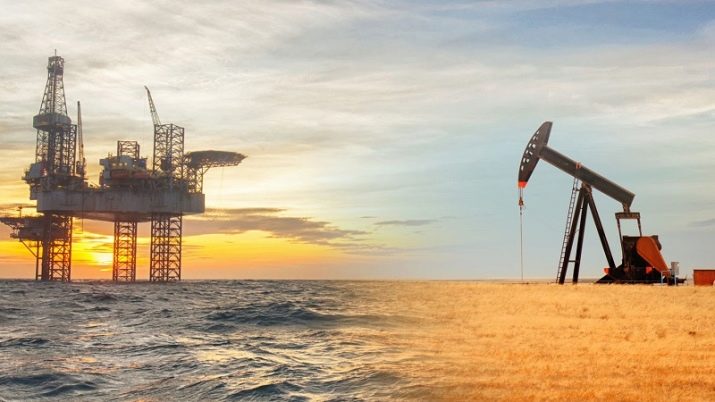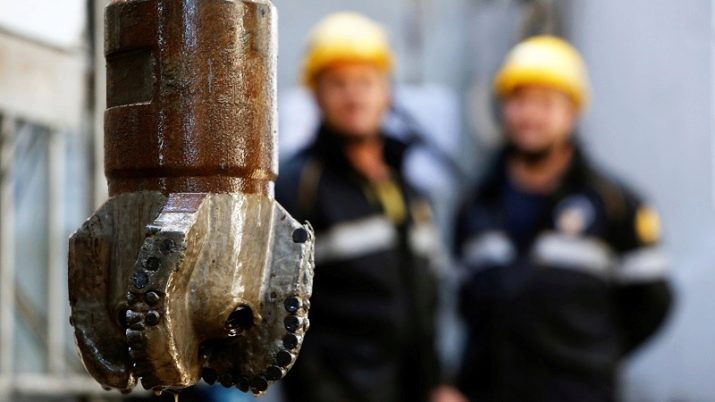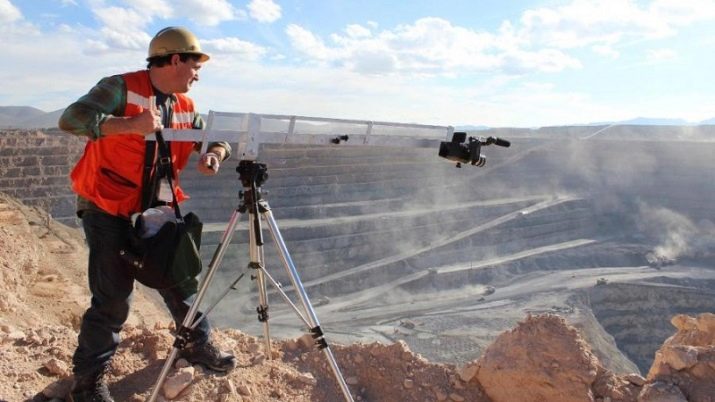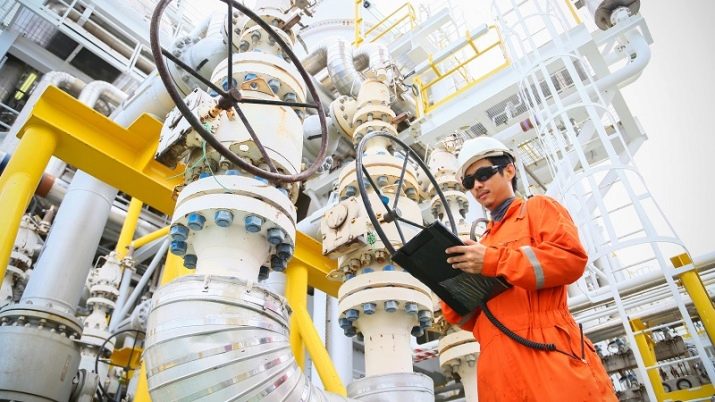Oil professions

Oil is one of the most expensive resources that can be found in the bowels of the earth. It is not at all surprising that the countries where it is mined and processed are the richest, most developed and prosperous.
Today the oil industry is very well developed, this is primarily due to the fact that a lot of new equipment has appeared recently. And yet it cannot function fully without human labor. Currently, there are many professions that are associated with oil. It is about them that will be discussed in this article.

Working specialties
Oil workers in the labor market are one of the highest paid workers, so this profession is very popular. It is this factor that has the greatest influence on people who choose their future activities. But, of course, do not forget that this work is very dangerous and is more suitable for men than for the fairer sex, although the latter found themselves in it.
The list of professions for men in the oil industry is quite varied. All working specialties are divided into certain groups depending on the professional activity associated with the extraction, transportation and refining of oil.
- Assembler. Performs absolutely all work related to the installation of structures, technical equipment, pipeline elements.
- Plumber. Serves and repairs the main line, monitors the correct operation of equipment and the entire oil pipeline as a whole.
- Insulator. Monitors the technological process, the work of measuring instruments. The main purpose of his work is the timely application of a special anti-corrosion coating to the oil and gas pipeline to protect and isolate the pipeline.
- Gas cutter. Manufactures various metal parts for further construction of drilling rigs and pipelines. A specialist must be fluent in oxygen and airborne cutting of metals.
- Driver. This specialty is in great demand in the oil industry. There are several specializations: an internal combustion engine operator, a mobile compressor operator, a drilling rig operator, a power plant operator. Each of them implies actions with certain equipment.
- Driller. This is probably one of the most important working professions. It is a person of this profile who makes, deepens, strengthens wells for oil production under water or on land.
- Engineer. Serves power and technological equipment, prepares it for work, monitors serviceability. The main goal of its activity is to ensure high-quality and uninterrupted operation of the cementing equipment engine.
- Locksmith. Performs disassembly, assembly, equipment repair. Tests units of drilling rigs, takes part in assembling wells, installing valves.
- Refinery operator. It is engaged in the maintenance of absolutely all equipment that takes part in the oil production process.
As you can see, there are quite a few workers in the oil industry. And among all of them it is impossible to single out one or the other as the most important. Each employee is irreplaceable, performs a certain job, on which the result ultimately depends.

Engineering staff
In addition to working specialties, there are also engineers and technicians.
Geological engineer
A specialist in this field is engaged in the exploration of mineral resources. The geologist is the beginning of the beginnings of the entire oil industry. His responsibilities include:
- collection of soil samples;
- drawing up diagrams and maps;
- processing of the received data.
After carrying out all the above measures, the specialist concludes whether there is oil in a certain place or not. The conclusion of the geological engineer is the main document on the basis of which a decision is made to start drilling operations. Therefore, we can conclude that his work is extremely responsible.
Geophysicist
Engaged in seismic soil development. After determining the presence of oil underground, he begins a detailed study of the soil. The specialist must determine:
- propagation of waves, which oilmen call vibrations or explosions;
- features of vibrations;
- soil composition;
- the amount of oil.
Also, the geophysical engineer must plan the work of drillers and well developers so that it does not harm the environment.

Drilling engineer
This specialist must be very educated. This means working with modern equipment, so knowledge of the basics of physics, mathematics, hydraulics, hydromechanics is a must. Such a specialist is engaged in:
- well drilling schedules;
- forecast of results;
- coordinating the work of drillers;
- definition of risk.
The drilling engineer is always at the very center of events, together with the workers, he monitors the work progress.
Petroleum engineer
He oversees the drilling process, monitors the correct technology for performing work, ensures the safety of workers and, of course, reports to management for all work performed.

Work for girls and women
The time has long passed when there was a clear division of labor between men and women. Today, the latter occupy leadership positions, work in factories with heavy equipment - and no one is surprised at this anymore.It would seem that the oil industry is an occupation exclusively for men. But this is not at all the case. For many years, women have also been working in the oil and gas industry, receiving education in the same specialized educational institutions.
The fairer sex who have decided to connect their lives with the oil and gas industry can be:
- operators - they control equipment, monitor the implementation of the technological process, follow the readings of sensors that are installed on equipment and inside the wells themselves, keep logs and documentation;
- geologists (earlier in the article we described in detail what are the main responsibilities of a geological engineer);
- technologists - such a specialist constantly monitors the quality of the oil product produced from the well;
- laboratory assistants - this is probably one of the most acceptable and popular professions for girls in the oil industry, a laboratory assistant conducts all the necessary analyzes and tests, studies the composition of raw materials;
- samplers - a specialist is engaged in sampling, studying the properties of a petroleum product.
It is also worth noting that it is women in the oil and gas industry who hold positions in the service sector. Nursing staff, cook, cleaning lady, storekeeper - these are the employees you cannot do without in any industry.

Job descriptions
Oil production activities are very dangerous. To develop and commission a well, you need a lot of experience and knowledge of your business. Oil workers work with modern equipment, drill wells up to 10 km, so professionalism must be at the highest level.
Taking into account the danger of the profession, special job descriptions were developed and created for each employee. All employees of the oil industry must comply with them to ensure their safety:
- strictly follow the technological process;
- monitor the operation of the equipment;
- use personal protective equipment;
- keep logs, if necessary;
- take a responsible approach to the performance of their work and assigned tasks.
But how the employees fulfill their job descriptions is monitored by a separate specialist - an occupational safety engineer.

How to learn?
Oil as a raw material is in demand in many industries. Therefore, its extraction cannot cease to exist, because a large number of products are made from this substance. Of course, the most popular is gasoline. Based on this, professions related to the oil industry are in great demand on the labor market. Today there are quite a few higher and secondary educational institutions that train specialists for work in the oil and gas sector. Whichever university, college or university is chosen, the period of study in it is at least 4 years, and this is without practical training, which is a prerequisite for obtaining a diploma of a qualified specialist.
Throughout the entire period of study at the university, students study many sciences:
- metrology;
- hydromechanics;
- hydraulics;
- chemistry;
- geology;
- geophysicist.
Various theories, automation systems, computer and engineering graphics are also necessarily studied. After a specialization has been chosen, for example, an oil refinery operator, the student studies in more depth the process technology, equipment, and so on with all specializations. Today, excellent specialists in the oil and gas industry are graduated from the Neftekamsk Multidisciplinary University, on the basis of which future workers of the industry are trained in all directions. As for the salary, it is high. Of course, it depends on qualifications, experience and the position held.









